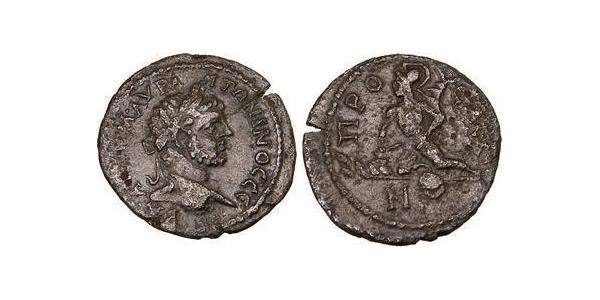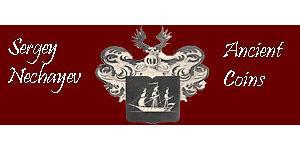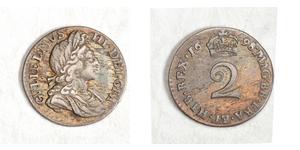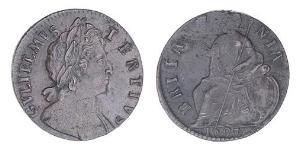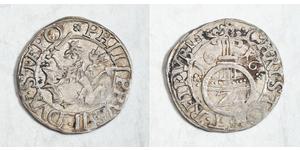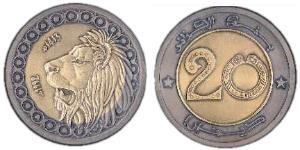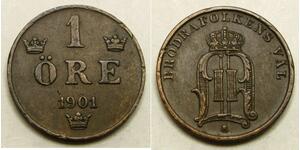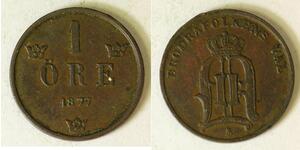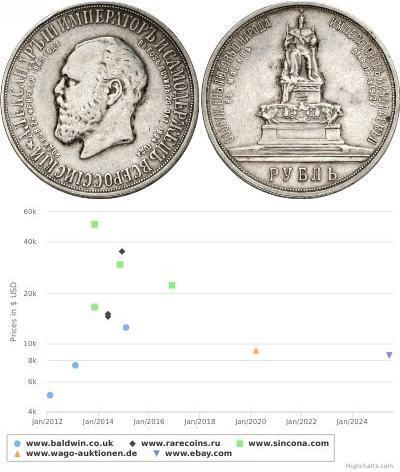[ 0823] Caracalla - 198-217 AD. Prusa ad Olympum - Bronze (25mm, 6.00g.). Very Rare. Reference: Waddington 102; SNG v. Aulock 873; Cornell 100. Laureate head right, AVT K M AVP ANTWNEINOC CEB. Ajax the Telamonian falling upon his sword left; pile of stones before, shield below, PRO-UCAEW-N above. Ajax, "[U]nconqured," and furious, falls upon his own sword, "conquered by his [own] sorrow" (ibid, p. 318). Ajax led the warriors of Salamis to Troy, and was regarded as the second greatest Greek warrior, after Achilles. When he failed to win Achilles' armor after the latter's tragic death, Ajax went mad and, after creating turmoil amidst the Greek ranks, finally committed suicide by falling on his sword. Provided with certificate of authenticity. CERTIFIED AUTHENTIC by Sergey Nechayev, PhD - Ajax or Aias (Greek: Αἴας, gen. Αἴαντος) was a mythological Greek hero, the son of Telamon and Periboea and king of Salamis. He plays an important role in Homer's Iliad and in the Epic Cycle, a series of epic poems about the Trojan War. To distinguish him from Ajax, son of Oileus (Ajax the Lesser), he is called "Telamonian Ajax," "Greater Ajax," or "Ajax the Great". In Etruscan mythology, he is known as Aivas Tlamunus. // Ajax the Great In Homer's Iliad he is described as of great stature, colossal frame, the tallest and strongest of all the Achaeans, second only to Achilles in skill-at-arms, and Diomedes to whom he lost a sparring competition as well as the 'bulwark of the Mycenaeans'. He was trained by the centaur Chiron (who had trained his father, Telamon, and Achilles' father Peleus), at the same time as Achilles. Apart from Achilles, Ajax is the most valuable warrior in Agamemnon's army (along with Diomedes), though he is not as cunning as Nestor, Diomedes, Idomeneus, or Odysseus. He commands his army wielding a huge shield made of seven cow-hides with a layer of bronze. Most notably, Ajax is not wounded in any of the battles described in the Iliad, and he is the only principal character on either side who does not receive personal assistance from any of the gods who take part in the battles. Trojan War In the Iliad, Ajax is notable for his abundant strength and courage, seen particularly in two fights with Hector. In Book 7, Ajax is chosen by lot to meet Hector in a duel which lasts most of a whole day. Ajax at first gets the better of the encounter, wounding Hector with his spear and knocking him down with a large stone, but Hector fights on until the heralds, acting at the direction of Zeus, call a draw: the action ends without a winner and with the two combatants exchanging gifts. The second fight between Ajax and Hector occurs when the latter breaks into the Mycenaean camp, and fights with the Greeks among the ships. In Book 14, Ajax throws a giant rock at Hector which almost kills him. In Book 15, Hector is restored to his strength by Apollo and returns to attack the ships, Ajax, wielding an enormous spear as a weapon and leaping from ship to ship, holds off the Trojan armies virtually single-handedly. In Book 16, Hector and Ajax duel once again. Hector is set on burning the ships, the only way he feels the Greeks will truly be defeated. Hector is able to disarm Ajax (although Ajax is not hurt) and Ajax is forced to retreat, seeing that Zeus is clearly favoring Hector. Hector and the Trojans succeed in burning one Greek ship, the culmination of an assault that almost finishes the war. Ajax is responsible for the death of many Trojans lords, including Phorkys. Ajax often fought in tandem with his brother Teucer, known for his skill with the bow. Ajax would wield his magnificent shield, as Teucer stood behind picking off enemy Trojans. Achilles was absent during these encounters because of his feud with Agamemnon. In Book 9, Agamemnon and the other Mycenaean chiefs send Ajax, Odysseus and Phoenix to the tent of Achilles in an attempt to reconcile with the great warr ...
читати далі

|
Добавив:
anonymous 2015-08-19 |
Similar Coin Groups
2025-05-23
- Нова монета додана до 1 Ере Швеція Бронза
1 Ере Швеція Бронза
в групі 3 монет / 2 цін
⇑
SWEDEN 1 Ore 1877 - Bronze - Oscar II. - VF - 1141
2025-05-29
- Історичні ціни на монету
Можливо, Вас зацікавить...

